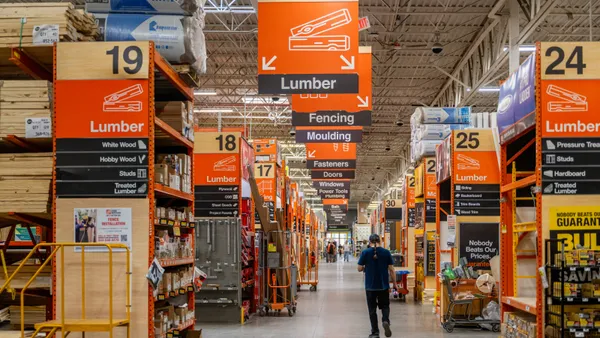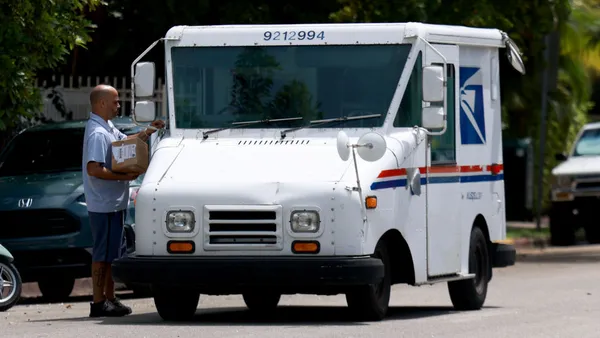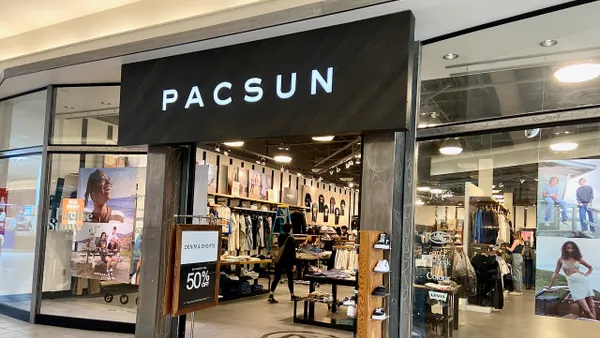Dive Brief:
- UPS reported 28% growth in U.S. operating profit year-over-year on the back of 9% growth in U.S. daily volume, in the company's third quarter earnings release Tuesday.
- The boost in operating profit (the highest in the company's history, according to CEO David Abney) is due to investments in automation, customer shifts toward faster shipping speeds and new "optimized procurement practices." These practices led the carrier to adjust expected capital expenditures down by $500 million for both 2019 and 2020.
- The bulk of UPS' much-lauded transformation is over now that nearly 80% of packages are handled in automated facilities. That figure will reach 85% in 2020, reported Chief Information and Engineering Officer Juan Perez.
Dive Insight:
UPS is ready to set another volume record for peak season, said COO Jim Barber. This year, the carrier has nine new aircraft to work with (and two more on the way) and 5 million additional square feet of automated warehouse space representing 400,000 pieces per hour of automated sort capacity.
In terms of mix, Barber said packages are getting lighter on aggregate as faster shipping speeds become more standard. Weight per piece was down half a pound in the third quarter, and next-day air volume was up nearly 24% over last year.
"Due to e-commerce structural changes, air volume continues to grow at near historic levels. And we expect demand to be strong during peak as Next Day delivery increasingly becomes the new standard for B2C and B2B e-commerce," Barber said.
On top of a cooling global economy, two personnel shifts are adding some uncertainty to the carrier's future performance. Barber announced on the call he will retire at the end of the year. According to a press release, Barber is responsible for the company’s global small package, freight, supply chain and freight forwarding units and global engineering. He also leads the company's international growth. Barber's successor was not announced. CFO Richard Peretz will also retire at the end of the year, to be replaced by Brian Newman, formerly executive vice president for finance and operations in Latin America for PepsiCo, who is already on the job.
While celebrating a record-breaking quarter, executives acknowledged the industrial economy is trending down, but said other trends, specifically a move toward faster e-commerce shipping and strong B2C growth coming from high tech and healthcare shippers, will bolster future results.
"As we look out to 2020, what we are really focused on is the relationship between the revenue per piece and the cost per piece and making sure we drive that leverage," said Newman.














